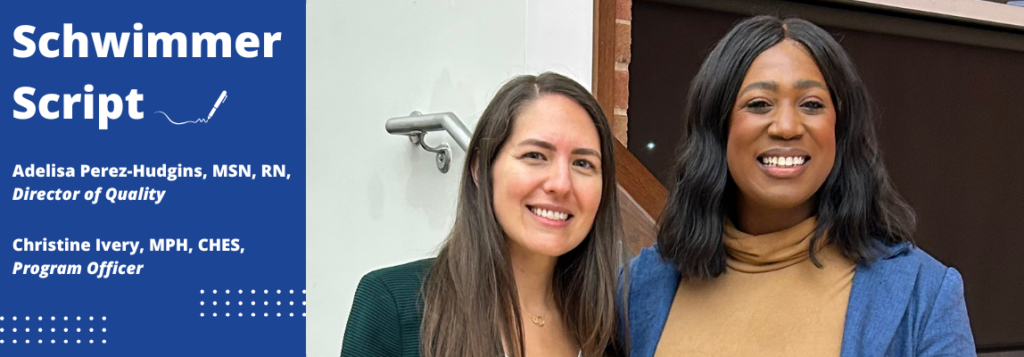A crisis exists in maternal mortality, and we’re proud to be leading one of the first pilots of a national initiative to improve birth equity, maternal child outcomes, and the experiences of people giving birth.
The National Partnership for Women and Families and the Robert Wood Johnson Foundation (RWJF) last year released Raising the Bar for Maternal Health Equity and Excellence, a practical guide to support health systems committed to advancing maternal child health.
RWJF asked us to lead a pilot of these actionable strategies here in New Jersey. We decided to focus on Mercer County, where residents primarily give birth at two hospitals: Capital Health Medical Center – Hopewell and Penn Medicine Princeton Medical Center. The Quality Institute reached out to both hospitals to ask them to pilot Raising the Bar at their hospitals, and we are grateful both hospitals enthusiastically agreed. They have been our active partners from the start, working to improve birth equity and outcomes within Greater Mercer County.
The pilot has three main areas. First, each hospital completed a review of its internal structures, as well as services, outcomes, and birth experiences. The assessment explored areas such as infant feeding support, mental health resources, midwifery and doula care, and social supports. This “benchmarking” enables hospitals to see what areas are working well and where they can improve.
Next, the hospitals are implementing TeamBirth, a shared decision making model that uses structured huddles to improve how health care providers communicate with each other and the person giving birth. The approach aims to ensure respectful care. The Quality Institute leads TeamBirth NJ in partnership with Ariadne Labs.
And a third component is the creation of Perinatal Community Advisory Boards, called PCABs, an innovative way for members of the community to have their voices heard and to contribute to decisions impacting them and their community. These boards include people who have given birth at each hospital, local leaders, social service providers, and community health workers. They serve as a bridge between the hospital and the community. They will meet at least quarterly, consider the hospital’s birth data, and work on mutually agreed upon improvement projects.
Through the Raising the Bar pilot, the hospitals are engaging their staff members, other clinicians, people who gave birth in the hospital, as well as community groups that serve pregnant people and their families. We will be collecting data on the pilot to determine our impact. We will continue to hold learning sessions to share this work with other hospitals and community-based organizations working to improve birth outcomes.
The interest and support for Raising the Bar and, in particular the PCABs, has been inspiring. One PCAB member, a new Mom, told us: “Care you receive can feel like it’s happening to you, rather than involving you. This initiative will help capture the blind spots in care and improve outcomes and communication. So many positives can come from this.” For more details on the work from hospital and clinical leaders, you can view a video news report by NJ Spotlight News.
Finally, at the Quality Institute, we continue leading our learning collaborations and coaching. We’re thankful to the New Jersey Department of Health for its long-standing support and funding of TeamBirth. So far, we have trained perinatal staff members at more than 15 hospitals and plan to continue until all New Jersey birthing hospitals are reached. Anyone who would like to learn more about these initiatives and how to engage in the work, please reach out to us at aperez@njhcqi.org or civery@njhcqi.org.

